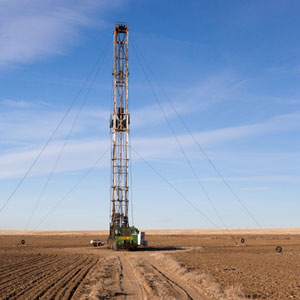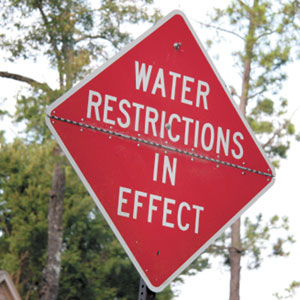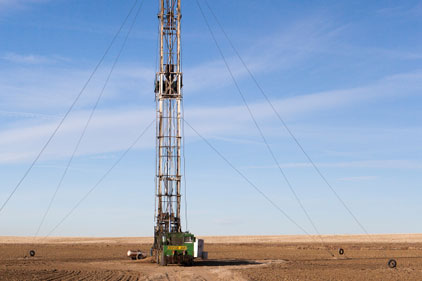
|
|
Dellapenna says it’s possible drillers could eventually be held responsible for migration of fracking wastewater, but it’s also expensive and time-consuming to prove what goes on underground. Source: iStock photos |
Professor Joseph Dellapenna of the Villanova University School of Law has been at the forefront of domestic and international water law for over three decades. His career has spanned the globe from China to Jerusalem to Portugal and beyond, involving his expertise on topics like water management, the Constitution and international law.
An influential legal scholar, Dellapenna’s work on international law has been cited in U.S. Supreme Court opinions written by Justices David Souter and John Paul Stevens. He also wrote “Waters and Water Rights,” widely considered the standard reference text for water law in the U.S.
Recently, he spoke to National Driller about trends in groundwater legislation and management, including fracking and water rights battles that are heating up across the country.
Q. Are there any upcoming regulations groundwater people can expect in the near future?
A. Well, I don’t know when there will or won’t be new regulations. Reports are floating around about the federal government doing regulations on fracking, which, strictly speaking, are not on groundwater but have an impact on groundwater. Of course, it depends on which state you’re in whether new fracking regulations are coming out.
Q. Are there any trends you’re seeing in these fracking regulations?
A. It depends on which state you are in and whether they are more inclined toward industry or protecting the surrounding landowners. There are mixed signals from the feds. On the one hand, the government wants to promote fracking as a way of promoting energy independence. On the other hand, they are somewhat concerned about the environmental effects. There is a lot of factual controversy about how dangerous fracking is for the environment.
Q. The Texas Supreme Court heard arguments this week in a case involving migration of fracking wastewater to a neighboring property. How much do you see drillers being held responsible for this type of issue?
A. Pressures are building in that direction. Even though a lot of drillers say fracking is perfectly safe, there are a lot of people who don’t agree with that and one result you see in some states is a moratorium on drilling.
It seems to me, in the case you mentioned, that if there is adequate proof, the courts will eventually hold the drillers responsible for any injury caused by the disposal of wastewater. The real problem, of course, is proving it. As you probably know, it’s very expensive and time-consuming to actually trace what goes on underground with regard to water.
Q. And what about the element of horizontal drilling, which brings in a lot of uncertainty?
A. As a matter of fact, that’s an issue I’m surprised hasn’t already hit the courts. Because if I were drilling for oil and I started horizontal drilling, that would be considered a trespass the moment I crossed the boundary line. I’d be stealing your oil. But so far you haven’t seen courts getting lawsuits by people saying, ‘You’re stealing my natural gas.’

|
|
Professor Joseph Dellapenna says that, particularly in regards to fracking, the conversation should be about balancing interests. |
Q. Can you point to any areas where the regulators or governments are getting it right, in terms of balancing the rights of various stakeholders?
A. I really can’t say there’s any area that’s solved the problem. The tendency is to lean in one direction—those are your fracking bans—or in the other direction, like the state of Pennsylvania, trying to ban fracking bans. … There’s not a lot of talk around here about trying to balance interests. And there should be.
Q. What’s the overall trend you’ve seen in regulations or court cases in the past 10 or 20 years, in terms of the evolution of thought regarding groundwater rights?
A. Well, it depends. If you’re in the western U.S., the trend is toward applying temporal priority. First in time, first in right, which is what they call prior appropriation.
In eastern states, the trend—although you know trends, they’re not universally true—is toward public management. Either like Florida, where you divide the state into five water districts, or more commonly a single state agency that decides how water is used, typically through time-limited licenses or permits.
That is, you’re given a permit to use water for 10 years, 20 years, it depends on the state. At the end of that time, the permit expires. Then you have to reapply, and the state agency decides once again if this is the best use of the water. Typically, these permit systems have been around for 60 years, others just a couple of years. But the ones that have been around a long time give us the experience to suggest that the real horror stories, such as that after 10 years you’re not going to have any water at all, don’t happen.
Typically, when the permit renewal time comes up, the previous user gets to continue using water, although additional conditions or restrictions might apply, so it might be under tighter control than it was before. And, typically, it will free up at least a bit of the water, but you’re not cutting users off altogether.
Q. How are western states handling competition in terms of supply between agricultural users, energy companies and public use?
A. That depends, of course, on state water law. In general, I’m afraid the trend in the West is to squeeze down agriculture to free up water for other uses. This is sometimes done through what are called markets, but in my opinion they are not really markets. It’s really the state administration masquerading as a market.
Normally, a private market where one water user leases or sells to another can only operate at a very small scale, and only for similar uses in very close proximity to one another because we have this concept called the third-party rule. I cannot sell or lease my water to a new user if it would substantially adversely affect anyone who already has a water right, even a junior water right.
As a practical matter, that makes large-scale water markets or transfers out of the region where the water’s being used virtually impossible. … If it’s transferred by distance or to a radically different use, then the third-party rule kicks in. In effect, any water user can sue and get an injunction against it. If it’s a large enough transfer, that’s going to affect a large number of people. You can’t simply buy them all off. It becomes too expensive.
So, what happens is the state announces they’re going to set up a market. The state comes in and essentially exempts itself from the third-party rule, which is all well and good if you’re freeing up water for new uses. Meanwhile, that means some of the old users are going to end up losing some or all of their water without being paid for it, because they depend on return flows and that’s the basis of the third-party rule.
… This is the basic problem. The state, in order to facilitate the so-called market, comes in and decides that they or certain individuals don’t have to worry about effects on a third party, which makes the transfer possible. But it also means the third parties have lost their water rights without compensation.
Q. Are there any big cases coming up, either in the Supreme Court or in any state cases, that could influence the trend of groundwater use and management?
A. In Texas, I’ve argued that the rule of capture does not actually represent a property right before you pump it at all, and the Texas Supreme Court two years ago said ‘No, that’s not right, you own the water under your ground.’
They didn’t deal with the problem that water’s constantly moving. Do I lose title when it leaves my property? What if it leaves my property because of the neighbors? Because the law in Texas is very clear: If your neighbor puts in a big well with a powerful pump, and the result is water that was flowing at a very slow rate suddenly starts flowing at a very fast rate, that’s not an invasion of my property rights. And yet the Supreme Court of Texas says I own the water under my ground.
So, they’re not entirely clear what that means. What they did make clear is that the state can’t pass a law saying rule of capture is abolished and that you have to have some new approach to groundwater law. And so I expect there will be litigation.
More importantly, the Texas Supreme Court decision in effect said you can’t have stringent regulations imposed on groundwater use without compensation. So, there’s going to be a lot of litigation in Texas over what regulations are allowable and what regulations are not without compensation. That’s where I see a lot of legal work.







Report Abusive Comment